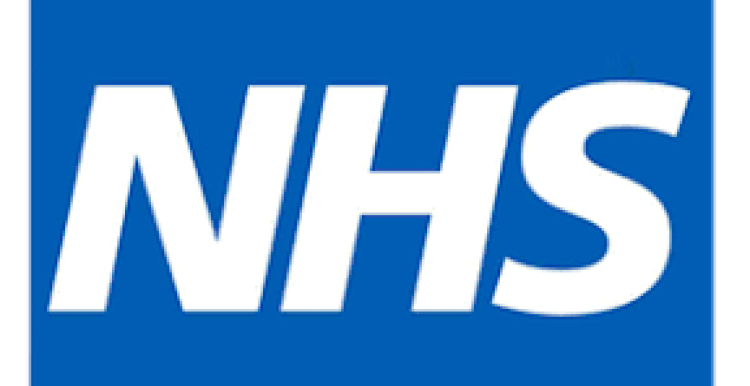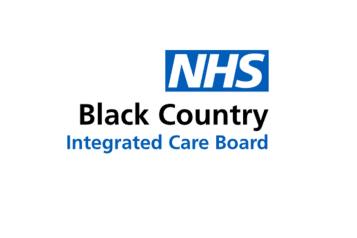Use NHS wisely during consultant and junior doctor strikes
People in the Black Country are being urged to think carefully about which health service they should use during this week’s industrial action. Hospital consultants are expected to go on strike for 48 hours from 7am on Tuesday 19 September until 7am on Thursday 21 September. Junior doctors will be on strike for 72 hours from 7am on Wednesday 20 September until 7am on Saturday 23 September.
This means that on Wednesday 20 September, both junior doctors and consultants will be on strike at the same time. All health and care partners in the Black Country are working together to prepare for the industrial action and are asking the public for their support. Emergency care will be prioritised, and people are being reminded that 999 and emergency departments are still the right services if it is a life-saving emergency.
However, for anything that isn’t life-threatening, people are being urged to use 111 online as the first port of call for health needs. People can also call 111 for help, advice, and signposting to the most appropriate service. Pharmacies, GP appointments, walk-in centres, minor injury units and urgent treatment centres will continue to be available during the industrial action and can help people with a range of injuries and illnesses. People with hospital appointments should continue to come forward for the care they need and do not need to call to check if appointments are going ahead. If appointments do need to be rearranged due to strike action, patients will be contacted directly.
Dr Ananta Dave, Chief Medical Officer for the NHS Black Country Integrated Care Board, said: “NHS services are currently extremely busy, and we expect them to remain busy and under increased pressure during the strike action taking place this week.
“We are working closely with our health and care partners to ensure those in greatest need continue to have access to high-quality care and support, however, it’s vital that people choose services wisely over this period so that care is available to patients who need it most. “If you need medical help or advice, you should contact NHS 111 online in the first instance, and they will direct you to the most appropriate service for advice or treatment. This could include your local pharmacy, GP or a local NHS walk-in centre. 999 and A&E departments should only be used if it is a life-threatening emergency. “We’d like to thank people for their patience and their ongoing support by using NHS services appropriately.” Dr Jonathan Odum, Group Chief Medical Officer for The Royal Wolverhampton NHS Trust and Walsall Healthcare NHS Trust, said: “Ahead of the upcoming strike action, we are asking patients to please use NHS services wisely and to only use A&E departments and 999 for life threatening emergencies to ensure care is available to patients who need it most.
“We do expect there to be an impact on some appointments and clinics but ask patients to continue to attend planned appointments unless you hear directly from the NHS to make new arrangements. “We thank the public for their support, and we are also incredibly grateful to all of the health and care staff across the Black Country who are working tirelessly to ensure patients get the right treatment, as quickly as possible, in the right place.”
This means that on Wednesday 20 September, both junior doctors and consultants will be on strike at the same time. All health and care partners in the Black Country are working together to prepare for the industrial action and are asking the public for their support. Emergency care will be prioritised, and people are being reminded that 999 and emergency departments are still the right services if it is a life-saving emergency.
However, for anything that isn’t life-threatening, people are being urged to use 111 online as the first port of call for health needs. People can also call 111 for help, advice, and signposting to the most appropriate service. Pharmacies, GP appointments, walk-in centres, minor injury units and urgent treatment centres will continue to be available during the industrial action and can help people with a range of injuries and illnesses. People with hospital appointments should continue to come forward for the care they need and do not need to call to check if appointments are going ahead. If appointments do need to be rearranged due to strike action, patients will be contacted directly.
Dr Ananta Dave, Chief Medical Officer for the NHS Black Country Integrated Care Board, said: “NHS services are currently extremely busy, and we expect them to remain busy and under increased pressure during the strike action taking place this week.
“We are working closely with our health and care partners to ensure those in greatest need continue to have access to high-quality care and support, however, it’s vital that people choose services wisely over this period so that care is available to patients who need it most. “If you need medical help or advice, you should contact NHS 111 online in the first instance, and they will direct you to the most appropriate service for advice or treatment. This could include your local pharmacy, GP or a local NHS walk-in centre. 999 and A&E departments should only be used if it is a life-threatening emergency. “We’d like to thank people for their patience and their ongoing support by using NHS services appropriately.” Dr Jonathan Odum, Group Chief Medical Officer for The Royal Wolverhampton NHS Trust and Walsall Healthcare NHS Trust, said: “Ahead of the upcoming strike action, we are asking patients to please use NHS services wisely and to only use A&E departments and 999 for life threatening emergencies to ensure care is available to patients who need it most.
“We do expect there to be an impact on some appointments and clinics but ask patients to continue to attend planned appointments unless you hear directly from the NHS to make new arrangements. “We thank the public for their support, and we are also incredibly grateful to all of the health and care staff across the Black Country who are working tirelessly to ensure patients get the right treatment, as quickly as possible, in the right place.”

NHS 111 can help if you have an urgent medical problem and you’re not sure what to do. You can contact the service online 111.nhs.uk or by calling 111, 24 hours a day, 7 days a week.
Pharmacists can also offer expert advice on lots of common conditions such as coughs, colds, aches, and pains. To find your local pharmacy, visit the NHS website here. People should only call 999 if it is a medical emergency

